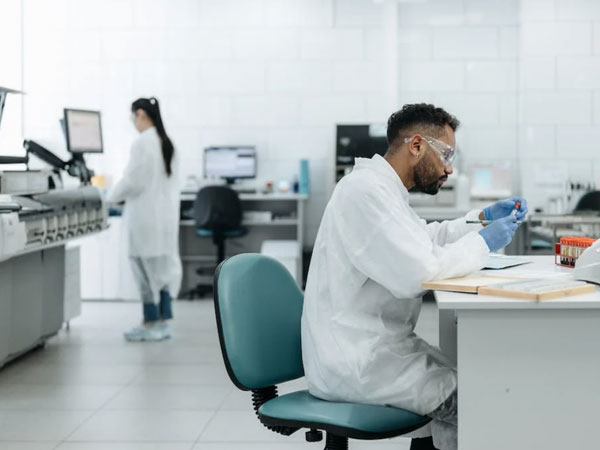SA, Germany sign agreement for production of vaccines
Under the agreement the German government, through KfW, will provide South Africa with €20 million for vaccine production over a period of five years.

- Country:
- South Africa
The Department of Science and Innovation (DSI) and Germany's KfW Development Bank have concluded a financing agreement for the production of vaccines.
Under the agreement the German government, through KfW, will provide South Africa with €20 million for vaccine production over a period of five years.
The grant is exclusively for financing equipment for the development, production and certification of active pharmaceutical ingredients for vaccine production in South Africa.
Announcing the signing of the agreement, Higher Education, Science and Innovation Minister Dr Blade Nzimande said the grant will be used, among other things, to support the mRNA technology transfer hub that South Africa is hosting for the World Health Organisation (WHO), to build vaccine manufacturing capacity in low and middle-income countries, “although it will go beyond this in providing support”.
“The objective of the technology transfer hub is to establish or enhance sustainable mRNA vaccine manufacturing capacity in regions with no or limited capacity, introduce new technologies in low and middle-income countries, promote regional research and development, strengthen regional bio manufacturing know-how and workforce development, and develop regulatory capabilities to support and accelerate regional approval and distribution of mRNA vaccines,” Nzimande said.
In response to the WHO decision made during the COVID-19 pandemic, Nzimande said the German government indicated its commitment to supporting vaccine production in South Africa.
The agreement, signed on 25 July 2023, makes the DSI the recipient of the KfW financial support on behalf of the South African government, and recognises the DSI and its Director-General, Dr Phil Mjwara, as the custodian and leader of the South African vaccine manufacturing strategy.
The Minister said the German decision to work with the department could be seen as a vote of confidence in its leadership's management of international funds.
"The German investment will build on the strategic investments by DSI and other partners, and KfW has agreed to work in alignment with the South African vaccine manufacturing strategy," Nzimande said, adding that the funding could support catalytic initiatives under this strategy.
The South African Medical Research Council (SAMRC) will be the project executing agency and will report to the DSI through a steering committee.
SAMRC President and CEO, Professor Glenda Gray said, the Council is delighted to be part of the program, which will provide critical support to establishing a vaccine manufacturing industry in Sub-Saharan Africa.
“In addition to complementing the activities of the mRNA hub program, this partnership will seek to provide critical support in filing gaps in the pre-clinical research domain,” Professor Gray said.
KfW will appoint an implementation consultant to support the KfW and to assist the SAMRC.
The consultant will be responsible for providing sector-specific support for project planning, management, monitoring and evaluation, among others.
Ambassador Andreas Peschke, from the German Embassy in Pretoria, reiterated the important role played by South Africa in strengthening continental vaccine manufacturing capacities, indicating that “the country is at the very forefront of continental efforts for local pharmaceutical and vaccine research and production.”
“[South Africa’s] world-class research institutions and a solid industry meet the prerequisites for independent vaccine research, development, and production,” Peschke said.
(With Inputs from South African Government Press Release)










